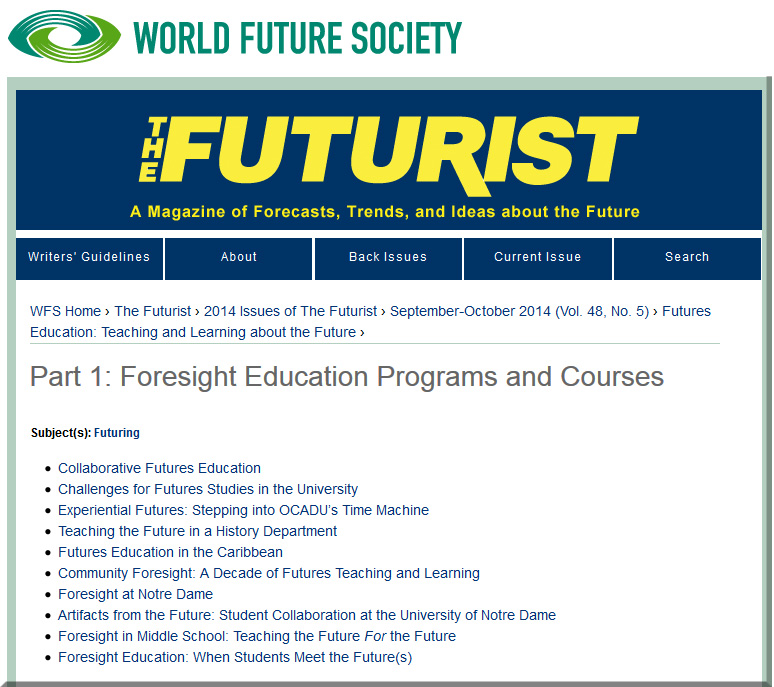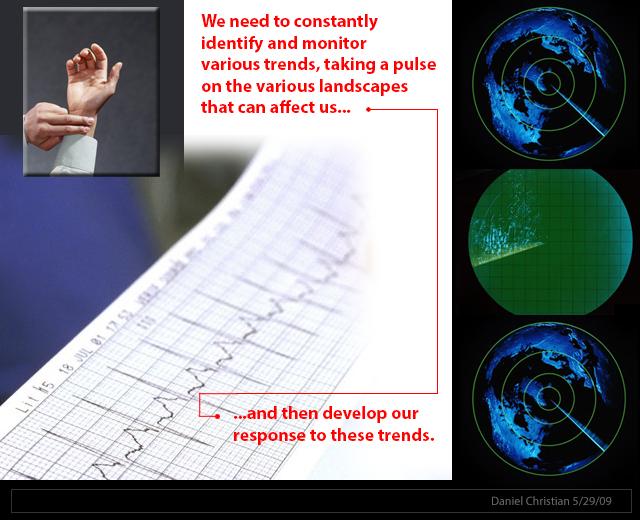Introduction (emphasis DSC)
Futures Studies as it has evolved since the early 1970s is both a discipline and a meta-discipline. It is a set of skills and applied methodologies that can be learned—in impressively diverse ways—and it is a dynamic way of coming to understand the world that is practical and empowering. As Alvin Toffler wrote in 1974, “A focus on the future is relevant to all learners, regardless of age.”
For this special report, we called for essays from futurists who have experienced futures education, be it in a K-12 class project, a professional certificate program, a workshop, or a full degree program. We received an overwhelming response from students, educators, and several people who have been on both sides of the learning and teaching experience.
We hope readers will continue to share their experiences with us—and with tomorrow’s futures learners.
—THE EDITORS
From DSC:
I can’t stress enough the importance of helping students learn more about how to see what might be coming down the pike — to be able to pulse check a variety of environments. This is not “fluff”, gazing into a crystal ball, or pie-in-the-sky type of thinking. There are numerous techniques being used within futurism today*, with real and practical applications.
For me, futures studies have strong ties in with developing strategy and vision as well as identifying opportunities and threats.
Students need access to many more of these *futures studies* programs! (teachthefuture.org may be helpful here). We can’t start building these programs out too soon. Enrollments should be strong once people understand how helpful and practical these skills and methodologies can be. In fact, given the exponential pace we are currently experiencing, these skills become critical not only for corporations/businesses and for higher education, but for individuals as well — especially seeing as more of us are becoming contingent workers (freelancers, independent professionals, temporary contract workers, independent contractors or consultants).
When we’re moving at 180 mph, we can’t be looking at the front of our hoods. We need to be scanning the horizons.
* As Haven Allahar stated in the item “Futures Education in the Caribbean”:
…the common techniques utilized in the practice of futuring:
- Scanning.
- DEGEST (demography, economics, governance, environment, society, technology).
- Trend analysis.
- Scenarios.
- Delphi polling.
- Modeling.
- Simulation and games.
- Brainstorming.
- Visioning.
- Anticipating wild cards.










